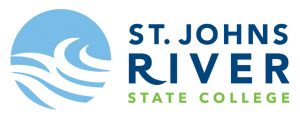An advanced Visual Basic.NET programming course. Students will be introduced to advanced object-oriented programming using the .NET Framework using classes in the MSDN. Topics include garbage collection, exceptions, file handling and operations, database programming fundamentals, and advanced event-driven programming techniques as well as graphics and animations.
A beginning course in the Microsoft.NET environment. Students will learn to use Visual Basic.NET programming language, including hands‐on exercises for graphical user interface components, menus, loops, selection structures, arrays and file input and output. Students will also be exposed to the basics of object‐oriented programming.
Microcomputer Applications Software This course provides an in-depth study of functions common to database applications in the business environment. Topics include database design, data maintenance, report generation, advanced reporting, mailing labels generation, multiple databases, and elementary programming.
This course provides an introduction to data communications technology as it is applied to problems in the business world. Subjects covered include: communication theory, the role of standards, terminal- host communications, Local Area Network (LAN) technologies, Wide Area Networks (WAN), Network Management, and applications such as e-mail and groupware, Intranets, and the Internet.
This course is designed to make the student proficient in microcomputer operating systems. Major topics include disk and file management, system configurations, menu driven processing and graphical user interfaces.
This is an introductory, “hands-on,” course providing students with the basic terminology and concepts to use a microcomputer (PC). Students will master the basic concepts of the current Windows-based operating system and microcomputer applications programs. Applications include word processing, spreadsheet and database management programs using Microsoft Office as the tool for teaching these concepts.
This course, intended for individuals with no previous computing experience, includes the history of computers, a survey of how computers are used today, the basic components of computers and computer terminology and laboratory experiences using application software. A study of information systems and computer careers completes the course. Additional lab time may be required in order to complete application assignments.
An introduction to the fundamentals of computer programming. Topics include using text editors, compilers, algorithm design, structured design and programming, debugging, and testing. C programming language is used to demonstrate structured programming techniques.
